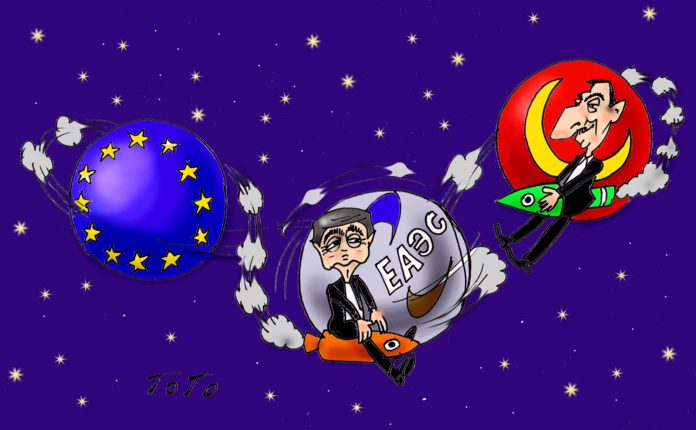Armenia once again is caught in a tug-of-war between East and West. In 2013, after long negotiations with the European Union, Armenia’s President Serzh Sargsyan abruptly interrupted the talks with the EU and made an about face to sign an agreement with the Moscow-led Eurasian Economic Union.
To this day, there has not been an official explanation why the president took the personal decision to lead the country in another direction. But the reasons are obvious: arm twisting from Moscow.
The EU did not take any retaliatory actions and instead continued its support for Armenia and its efforts to woo Armenia and other countries in the Russian sphere of influence. Moscow carried away with its regional and global interests, did not necessarily tend to Armenia’s economic needs, leaving the door open for an opportunity to once again take its chances with the West.
The Eurasia.net blog notes: “To counter disenchantment with the pact, Russian media has added its voice to the Kremlin’s efforts. Moscow state-financed Sputnik news service this week described the EEU as a chance, courtesy of Russia, for Armenia to restore Soviet-era prosperity.”
This initiative comes on the eve of Armenia’s rapprochement with the West. Indeed, next month President Sargsyan will attend an EU summit in Brussels, joined by Azerbaijan, Belarus, Georgia, Moldova and Ukraine.
This is part of the comprehensive global plan by the West to isolate Russia. Moscow may bite the bullet and refrain from punishing Armenia which is not the only “culprit” in its temptation to embrace the West.










